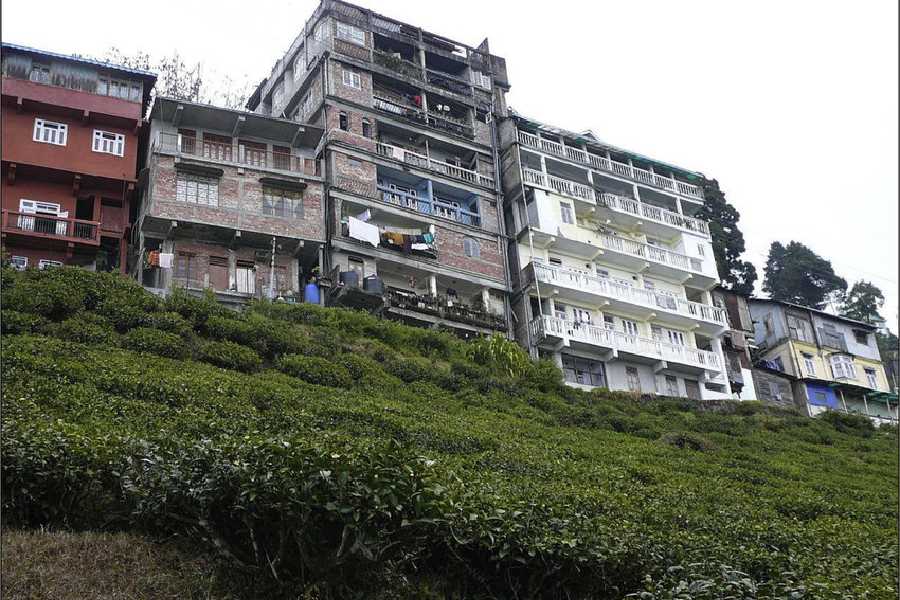The Bengal cabinet has approved the transfer of the plots of the Darjeeling Improvement Fund and Development Area to the land and land reforms department in a move aimed at granting land rights to the occupants of those plots, said Kalimpong MLA Ruden Sada Lepcha.
Darjeeling Improvement Fund and Development Area is unique to Darjeeling and Kalimpong districts of Bengal and was set up by the British.
Around 22 mouzas are under this head and the plots have been leased out to set up haats (markets) and for residential purposes.
“The Bengal cabinet today (Monday) approved the transfer of the DI Fund and Development Area plots to the land and land reforms department to pave the way for granting of land rights to the people residing in these areas,” Lepcha said on Monday.
Around one lakh people reside in these areas which are largely concentrated in Kalimpong town, Sukhiapokhri in Darjeeling subdivision and Naxalbari in Siliguri subdivision.
A number of apolitical committees had been formed since 2003 to raise the demand for land rights.
“The residents want land rights, which essentially means converting their land status from lessees to raiyatis (land holders),” said a source. Apart from residential houses and markets, the Mela Ground of Kalimpong and the bungalow and defunct golf course at Tiger Hill fall under the DI Fund.
Anit Thapa, the president of the Bharatiya Gorkha Prajatantrik Morcha (BGPM) and the chief executive of the Gorkhaland Territorial Administration (GTA), said the Bengal cabinet’s decision was an achievement for the hill people.
“The BGPM had started a slogan — my land, my right — and this is an outcome of that endeavour. This is a big achievement of the BGPM. I also want to thank Kalimpong MLA Ruden Sada for raising this issue relentlessly,” said Thapa.
Ruden Sada Lepcha is a BGPM MLA.
In the Darjeeling hills, nearly 70 per cent of the population does not have land rights. The state government had started a process to grant land rights to tea garden workers but the move stalled in recent months.
In February, chief minister Mamata Banerjee had handed over the documents of the land rights to 1,000-odd tea garden workers in thehills and the plains of north Bengal. She also announced that the government would make sure that all workers living in the tea gardens were provided with pattas within six months.
However, labourers and tea unions were divided onthe validity of the document distributed by the government.
This is because the government had issued homestead pattas which cannot be transferred. The homestead plot can only be inherited by direct descendants after the death of the land-right holder.
Also, the ceiling of the land with the homestead patta is 8.2 decimals. Many in the hills have argued that several workers in the tea gardens have been in possession of more than 8.2 decimals for generations.
“We hope the issue of land rights for tea gardens, cinchona plantation workers and the DI Fund areas will gather steam, once again,” said an observer from the hills.










